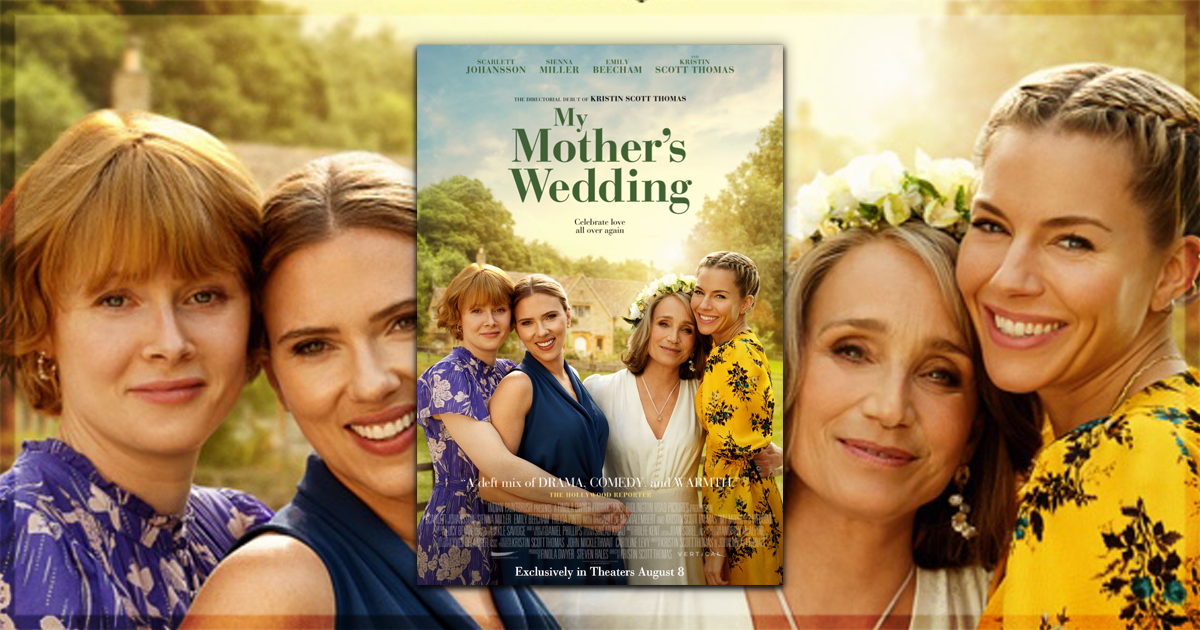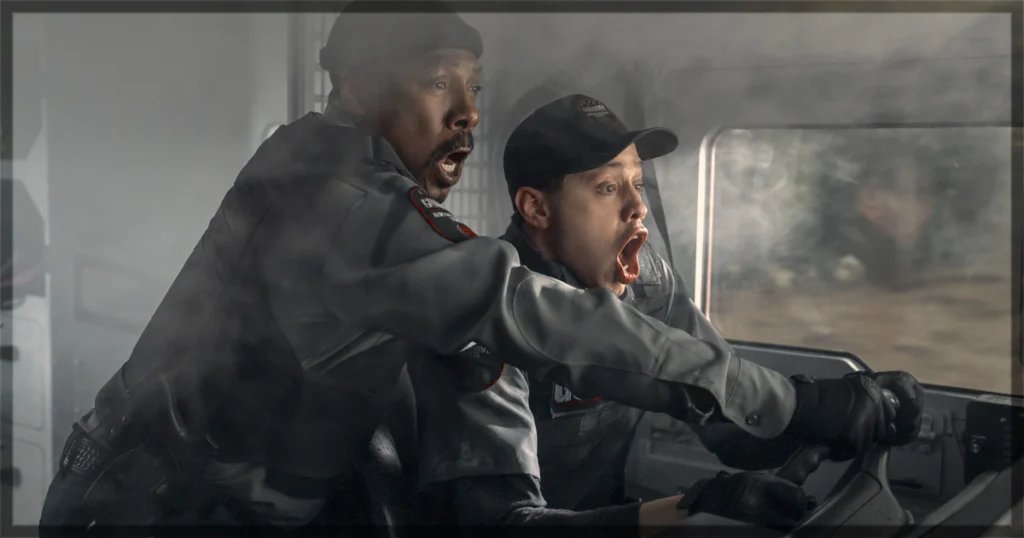I am the oldest of three sisters, so movies about sisters always catch my eye. Sibling relationships are always fascinating because these are people with whom you share a history, but may not have a lot in common beyond that. In her directorial debut, My Mother’s Wedding (originally titled North Star), Kristin Scott Thomas brings us into a story about three sisters gathering for their mother’s third wedding and the conflicting emotions that can arise from such an event. Unfortunately, in this film, emotions tend to feel more stunted than cathartic.
Diana (Kristin Scott Thomas) is about to walk down the aisle for the third time, marrying Geoff Loveglove (James Fleet). But the talk of the guests is how this should be the wedding between Diana’s oldest daughter, Captain Katherine Frost (Scarlett Johansson), and her girlfriend, Jack (Freida Pinto). Joining them in the English countryside are the middle daughter, Victoria (Sienna Miller), an actress who has made her fortune in America, and the youngest daughter, Georgina (Emily Beecham), a wispy woman who is concerned about her husband’s infidelity.
The wedding is an opportunity for these three sisters to come to grips with the early loss of their fathers. Katherine and Victoria were both born to Diana’s first husband, John Frost, also a member of the Royal Navy. After he passed away, Diana married his best friend, Johnny Monson, bringing Georgina into the mix. The girls have limited memories of their fathers because Monson was also in the military and went missing in action. These limited memories have allowed the girls to create some larger-than-life images of these men, making it hard for them to accept that their mother is marrying again.
Despite My Mother’s Wedding being based on aspects of Kristin Scott Thomas’s life, much of this film feels manufactured and inauthentic. While all of the actors are incredibly talented and do what they can with the material, the script never feels like it goes deep enough to elicit a meaningful emotional reaction. There are certainly aspects that are meant to evoke a response in the viewer, but they all have a sheen of manipulation on them that keeps them from hitting the mark.
Throughout the film, there are moments of black and white animation that are meant to convey Katherine’s memories. They are quite lovely, but feel entirely out of place in the movie. Maybe if we had the sense that Katherine had some kind of love of drawing or something, they could work, but as it is, they seem like they belong in a different film, feeling more jarring than thoughtful in their inclusion.
One of the most positive aspects of My Mother’s Wedding is the production design. The beautiful English countryside and the cozy cottage, where the bulk of the film takes place, are a gorgeous backdrop to this story. It gives us a sense of where the family comes from and how they grew up. This, combined with the beautiful cinematography of Yves Bélanger, provides this film with a warmth that is somewhat lacking in the script.
As mentioned above, the performances are all quite impressive. Johansson, Miller, and Beecham have lovely chemistry and can easily convince us that they are sisters. To the degree that they are able, they bring each of their characters to life. Sadly, the script rarely goes deep enough to allow any of them to have that emotional catharsis that we crave as the film progresses. Side characters, while nobly performed, at best add little to the story, and at worst, are roles that confuse the tone. Scott Thomas has one scene in the third act where she really gets to lay it all on the table, and it is easily one of the best moments in the film.
One of the most frustrating parts about My Mother’s Wedding is that, in a movie that has four female leads, I am not certain it would pass the Bechdel Test. Nearly every conversation is about a partner or one of their fathers. We rarely have a chance to sit with these women and learn anything about their hopes or desires outside of their romantic relationships, their roles as mothers, or their relationship to their fathers. We get very little of their relationships with one another and their mother, which feels like a lost opportunity.
Movies will sometimes be a bit emotionally manipulative, and truthfully, they are usually successful at making me feel something, even if they don’t have the goods to fully back up what they’re selling. My Mother’s Wedding seems to be trying that tactic, but is unable to achieve that goal. It’s just a bummer when you feel sad because this beautifully shot, well-acted movie didn’t make you feel sad. Or really much of anything.
My Mother’s Wedding is now in theaters.
Learn more about the film, including how to get tickets, at the official website for the title.


